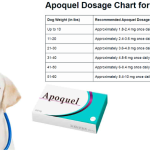Cytopoint is a relatively new pet allergy treatment many pet owners have turned to in recent years. While the drug has successfully managed symptoms for many pets, some users have reported dissatisfaction and negative experiences. In this article, we’ll cover everything you need about Cytopoint complaints, including real-life experiences and feedback from pet owners across the United States.
Key Takeaways
- Despite its success in managing pet allergies, some pet owners have reported negative experiences with Cytopoint.
- We’ll cover both the benefits and drawbacks of the treatment.
- It’s essential to seek veterinary guidance when dealing with any concerns related to Cytopoint.
Wondered How Long Does Cytopoint Last? Click here…
What is Cytopoint?
Cytopoint is a wonder in treating the canine allergies prescribed by vets to help your pet fight those cunning allergic skin conditions. This medicine targets and destroys the prominent immune-causing itching and inflammation, making it the most effective option for pet owners. Cytopoint is administered as an injection by a licensed veterinarian and typically provides relief for several weeks.
Cytopoint has proved its efficiency for many dogs, but the case might differ for your dog because this medication does not follow the one-size-fits-all approach. This medication can help fight flea and environmental allergies, but not for every dog with allergic issues.
Potential Side Effects of Cytopoint
We all know that the medicine can’t have zero side effects. Similarly, there exist some side effects of the Cytopoint. Most dogs react normally to the medication, but some dogs can face mild side effects like diarrhea or lethargy. Some of them might also get severe side effects like anaphylaxis or more allergic reactions in rare cases.
It’s essential to consult your trusted veterinarian before starting treatment with Cytopoint to discuss any potential risks or concerns. If a dog experiences adverse reactions while using Cytopoint, stopping treatment and seeking veterinary care is essential. Cytopoint is a viable option for many pet owners seeking relief from their dog’s allergic skin conditions.
The Benefits of Cytopoint
Cytopoint has emerged as the ray of hope for many pet owners struggling to manage their dogs’ allergic reactions. With its instant relief and long-lasting formula, Cytopoint has not only helped to treat allergies but also improved the quality of life for pets and their owners.
Many pet owners who have used Cytopoint have reported positive experiences. Overall, the benefits of using Cytopoint outweigh any potential drawbacks. Although there are chances of some mild effects, Cytopoint has been proven an excellent solution for those pets fighting allergic issues.
Real-Life Cytopoint User Experiences
- “I was skeptical about using Cytopoint for my dog’s allergies, but it has been a game-changer. He used to scratch and chew on his paws all day, and now he’s much calmer and happier.” – Sally, California.
- “Cytopoint has been a lifesaver for my dog. He was miserable before, always itching and scratching. Cytopoint gave him the relief he needed, and now he’s back to his happy, playful self.” – John, New York.
- “I was worried about side effects with other medications, but with Cytopoint, I don’t have to worry. It’s been a safe and effective solution for my dog’s allergies.” – Sarah, Texas.
Common Cytopoint Complaints
Despite its many benefits, Cytopoint has its drawbacks. Many pet owners have reported dissatisfaction with the treatment, citing various problems and complaints. Negative reviews of Cytopoint are not uncommon, and pet owners need to be aware of these issues before starting their pets on the treatment.
- One of the most common complaints about Cytopoint is that it does not work effectively for all pets. While many pet owners report significant improvements in allergy symptoms after starting Cytopoint, others see little to no improvement. This variability in response can be frustrating for pet owners with high hopes for the treatment.
- Another common complaint is the cost of Cytopoint. The treatment can be costly, especially for larger dogs requiring higher doses. Some pet owners cannot afford the ongoing expenses of Cytopoint, leading to dissatisfaction.
- In some cases, pet owners have reported adverse reactions to Cytopoint. However, these rare reactions can be concerning and lead to negative treatment reviews. Some pets who received Cytopoint have reported allergic reactions, vomiting, and diarrhea.
Finally, some pet owners have reported that Cytopoint’s effects wear off too quickly, requiring more frequent injections than expected. This can be inconvenient and frustrating for pet owners who had hoped for longer-lasting relief for their pets’ allergy symptoms. Pet owners must be aware of these common complaints and problems associated with Cytopoint.
Potential Side Effects of Cytopoint
Cytopoint has been generally well-tolerated by dogs, but as with any medication, there are potential side effects.
Some of the reported side effects of Cytopoint include:
| Side Effect | Description |
| Itching at the Injection Site | Some dogs may experience mild itching or redness at the injection site. |
| Vomiting or diarrhea Some | e dogs may experience mild digestive issues, including vomiting or diarrhea, after receiving Cytopoint. |
| Lethargy or Sleepiness Some | e dogs may experience increased lethargy or sleepiness after receiving Cytopoint. |
| Allergic Reaction or Anaphylaxis | While rare, some dogs may experience an allergic reaction or anaphylaxis after receiving Cytopoint. An allergic reaction includes symptoms like swelling of the face or lips, hives, difficulty breathing, and collapse. |
The vet should be informed promptly if these side effects are visible. It would be best to consider that Cytopoint does not work the same for all dogs, especially those with underlying medical conditions and who are on any medication. Seek your vet’s advice to determine whether Cytopoint suits your case.
Potential Side Effects of Cytopoint: Summary
Cytopoint may cause mild side effects such as itching at the injection site, vomiting, or diarrhea. Some dogs may experience increased lethargy or sleepiness after receiving Cytopoint. While rare, some dogs may experience an allergic reaction or anaphylaxis after receiving Cytopoint, which requires immediate veterinary attention. It’s crucial to discuss potential side effects with your veterinarian and follow their guidance accordingly.
Addressing Cytopoint Complaints
Experiencing issues with Cytopoint is not uncommon. As discussed before, pet owners tend to have some complaints about their dissatisfaction with Cytopoint. Those concerns can be adequately addressed with some solutions.
Firstly, it is crucial to communicate about the situation with your veterinarian openly. They are the ones who know the most about your pet’s health condition and their medical history as well. Based on these factors, they can help you provide personalized guidance and recommendations.
Another solution is to explore alternative therapies or treatments. Other medicines are available for treating dog allergies, and you must have a proper discussion with your vet before switching medications.
“I initially hesitated about seeking veterinary advice for my dog’s Cytopoint treatment, but I am grateful I did. My vet was able to address my concerns, and we were able to find a solution that worked better for my dog’s specific allergies.”
It is also essential to manage expectations when using Cytopoint. It is not a cure-all solution and may not work for all pets. Therefore, it is crucial to understand what to anticipate and measure the treatment’s success realistically.
While complaints and negative experiences with Cytopoint can be frustrating, addressing them and finding a solution is crucial for your pet’s health and well-being.
Seeking Veterinary Guidance
If you are considering Cytopoint for your pet, it is essential to consult with a veterinarian first. Your vet can evaluate your pet’s health and provide personalized advice on whether or not Cytopoint is the right treatment option.
In addition, keeping your vet informed of any adverse reactions or side effects your pet experiences while on Cytopoint is essential. Your vet can monitor your pet’s progress and adjust the treatment plan.
Overall, seeking veterinary guidance is crucial for ensuring the safety and effectiveness of Cytopoint for your pet.
While some pet owners have reported positive experiences with Cytopoint, others have encountered issues or complaints. By seeking veterinary guidance and working closely with your vet, you can make a better decision regarding Cytopoint and provide the best possible care for your furry friend.
Common Misconceptions About Cytopoint
Despite its widespread use in managing allergies, Cytopoint is not immune to complaints and dissatisfaction from some pet owners. While legitimate issues may arise from the treatment, common misconceptions also contribute to negative reviews and feedback.
Cytopoint Causes More Problems Than It Solves:
One of the most significant misconceptions about Cytopoint is that it has a higher number of side effects than benefits. The medication has some side effects that can be mild or severe. There are very few cases of side effects reported to date. We cannot deny the fact that the majority of dogs have responded great after the use of Cytopoint for canine allergy management.
Cytopoint Works Instantly:
Another common misconception is that Cytopoint works instantly, eliminating allergy symptoms immediately. While it is true that some pets may experience relief within 24 hours after treatment, it may take several weeks or multiple injections to see significant improvement. Cytopoint works by blocking the protein that causes itching and inflammation, not by providing immediate relief.
Cytopoint Cures All Allergies:
Some pet owners believe Cytopoint is a cure-all for all types of allergies. While it effectively manages certain types of allergies, such as environmental allergies, it may not work for food allergies or other underlying conditions contributing to allergic reactions. Working with a veterinarian to identify the root cause of allergies and develop a comprehensive treatment plan is essential.
Cytopoint is a Long-Term Solution:
Cytopoint is a short-term solution for managing allergies in pets. While the treatment can relieve and improve quality of life, it is a healing treatment but not a cure. Some pets may require ongoing treatment, while others may need to switch to alternative treatments or therapies over time.
Exploring Alternatives to Cytopoint
While comparing the benefits and side effects of Cytopoint for your dog individually, if the side effects are higher, it is better to seek other alternative treatments. Some available options are;
- Antihistamines: This is a standard treatment for pet allergies and may be an effective alternative to Cytopoint. Antihistamines work by blocking the effects of histamines in the body, causing allergic symptoms.
- CBD oil: Some pet owners have successfully managed pet allergies with CBD oil. This natural treatment may help reduce inflammation in the body and alleviate allergy symptoms.
- Therapy: Another option could be administering allergy shots over time to help desensitize pets to their allergens. This process is referred to as immunotherapy, which may be beneficial for pets with severe allergies.
- Natural remedies: Natural remedies like coconut oil, probiotics, or herbal supplements are also seen as effective in some cases. Although this is not a very appealing solution, it is much safer than any other treatment.
Cytopoint and Individual Pet Variability
- When using Cytopoint for managing pet allergies, pet owners must be aware of the variability in individual pet responses to treatment. While some pet owners have reported positive experiences with Cytopoint, others have expressed dissatisfaction and complaints. Understanding pet individuality can explain why experiences may differ and how to manage expectations.
- According to customer reviews and experiences, some pets may experience relief from allergy symptoms within a few hours of treatment. However, some pets may take longer to experience relief, or the treatment may not work. Individual factors such as breed, age, size, and overall health determine the effectiveness of Cytopoint.
- Before having high expectations with Cytopoint, it’s essential to recognize that there is no guarantee that the treatment will work for every pet. Veterinarians may recommend a trial period to assess the treatment’s effectiveness before committing to long-term use. Furthermore, you must immediately report any adverse reactions or side effects to your veterinarian.
- Understanding individual pet variability is crucial for managing expectations when using Cytopoint. While some pets may experience positive outcomes, others may not. Consulting with a veterinarian and assessing individual factors can help pet owners decide whether Cytopoint is the right treatment option for their pets.
Managing Expectations with Cytopoint
As with any medication, it is vital to manage expectations when using Cytopoint. While most pet owners have reported, positive results, dissatisfaction and complaints also exist.
Managing expectations also involves understanding what constitutes a successful outcome. While complete resolution of allergy symptoms may not always be possible, reducing the frequency and severity of symptoms is a reasonable goal.
Cytopoint complaints often arise from unrealistic expectations or misunderstandings of the treatment’s capabilities. Pet owners should know that Cytopoint is not a cure for allergies but a tool to manage symptoms. By setting realistic expectations and consulting with a veterinarian, pet owners can make beneficial decisions about their pet’s healthcare and treatment options.
Conclusion
As with any medication, Cytopoint may not be suitable for every pet. Complaints and reports of negative experiences exist, but they do not necessarily indicate the treatment’s effectiveness or safety. It’s important to remember that individual variability and underlying health conditions can significantly impact treatment outcomes.
- Consult a Veterinarian: Essential first step before starting Cytopoint to ensure it’s the right choice for your pet.
- Evaluate Pros and Cons: Carefully consider the benefits and potential drawbacks of Cytopoint with your vet’s guidance.
- Explore Alternatives: Be open to other therapies your veterinarian might recommend for allergy management.
- Tailor the Treatment: Understand that your vet might propose a customized approach based on your pet’s specific needs.
- Recognize Cytopoint’s Potential: While not universal, Cytopoint can significantly alleviate allergy symptoms and enhance pets’ lives.










